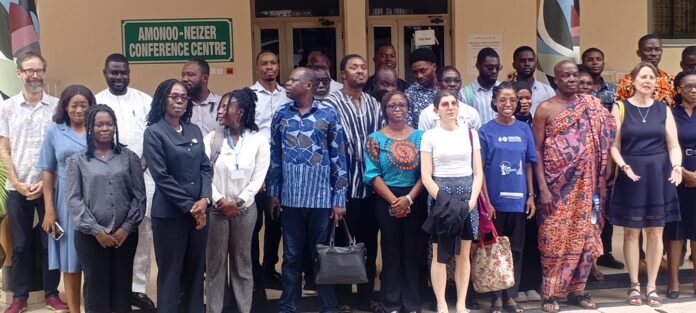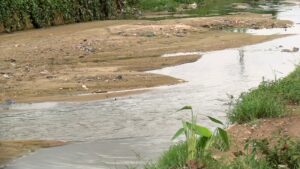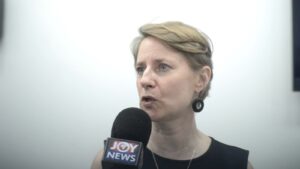Water access despite being an essential resource to life remains elusive to, especially poorer residents, living in urban centres, presenting untoward discomfort and inconvenience.
Scientists from the University of Copenhagen and the KNUST are starting a research study into how residents living in abject poverty in urban centres adapt to the ever-changing climatic conditions to access potable water for use.
The 5-year investigation is exploring the multi-factorial challenges that influence accessibility to water in the increasingly urbanized center of the Greater Kumasi metropolis.
As Ghana’s climate grows hotter and rainfall becomes increasingly unpredictable, urban residents in low-income areas are bearing the brunt of a water crisis.
Asawase – one of Kumasi’s clustered enclaves – is home to some of Ashanti region’s low-income earners.
In the past, residents relied on the only stream running through the enclave, the Pelele, as a source of potable water.
Once a clean and clear water source, the stream now collects milky sludge –its colouration nears a hot chocolate drink but can’t be gulped.
Nana Kwabena Pong has lived in the enclave for nearly five decades now.
“We used to drink from the stream in the 60s. But it’s no longer drinkable,” he said.
With growing urbanization and poor sanitary practices, the stream is no longer what it used to be. It is now an unhealthy running water source.
The residents living in the area must now find alternatives for domestic water use. It’s worse during the harmattan.
“Sometimes it’s difficult to get water especially for those of us living up the hill,” Harun Abdul Rashid, an assembly member, said.
Although peri-urban centres are expected to have increased water access, it is now a challenge.
The Ghana Water Company Limited (GWCL) admits that over 40% of treated water is lost through leaks, theft, and poor metering.
Water infrastructure projects remain underfunded, and city planning often exempts the urban poor.
To inform policy and planning, the Centre of African Studies at the University of Copenhagen and the KNUST are investigating how poorer residents in different parts of the city access clean drinking water under conditions of climate change.
“Rainfall patterns are changing and that has an impact on the places we draw water. Some areas witness flooding and that can pollute water sources. Climate change exacerbated the pressure on water accessibility,” Principal Investigator, Prof. Karen Lauterbach said.
The Multiple Waterscapes in Urban Ghana (MUWUG) project will be assessing challenging and opportunities in water accessibility in three suburbs in the metropolis including Asawase, Ejisu and Ayoum.





